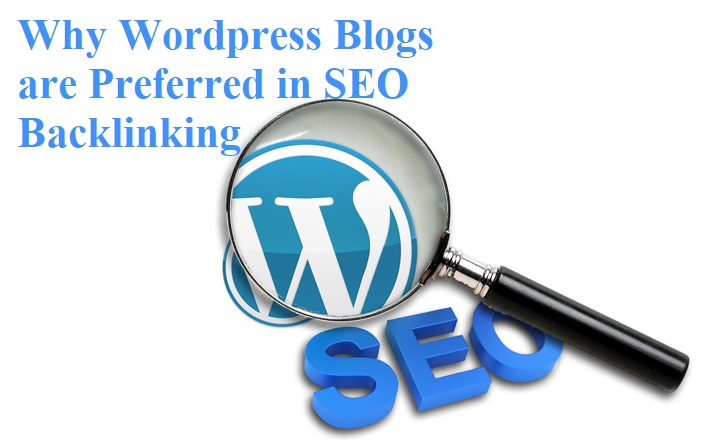SEO-Friendly Features
-
-
Customizable Permalinks
-
WordPress allows users to create attractive and descriptive permalinks, which can significantly improve user experience and search engine visibility. A well-structured URL provides clarity about the content, making it easier for search engines to index and rank the page.
-
-
Metadata Management
-
The platform enables easy management of metadata, including titles and descriptions for each page. This feature is crucial as it helps search engines understand the content better, thereby improving indexing and ranking potential. Users can also utilize plugins like All-in-One SEO Pack to automate optimization processes.
Fast Loading Times
Speed is a critical factor in SEO rankings. WordPress optimizes website loading times through caching mechanisms, ensuring that users have a smooth experience. Faster loading times can lead to lower bounce rates and higher user engagement, both of which positively influence search rankings.
Built-In Blogging Capabilities
WordPress was originally designed as a blogging platform, making it inherently suited for creating content-rich sites that attract backlinks. Regularly updated blogs with high-quality content naturally draw links from other websites, enhancing visibility and authority over time.
Community and Support
The vast WordPress community provides extensive resources, including plugins and themes optimized for SEO. Many themes come pre-configured with SEO-friendly settings, allowing users to focus on content creation rather than technical details. This accessibility encourages more users to adopt WordPress for their blogging needs.
Authority of Subdomains
Backlinks from WordPress.com or Blogspot can still hold value, especially if they originate from different subdomains. While these links may not carry the same weight as those from high-authority independent domains, they can still contribute to overall link diversity and traffic generation. Google often treats these platforms as unique domains, which means that backlinks from them can still provide some level of authority boost.
Quality Content Generation
WordPress facilitates the creation of high-quality content through various formats such as articles, infographics, and videos. The emphasis on quality over quantity in backlinks is crucial; relevant and authoritative links yield better results than numerous low-quality ones.
Boost Blog Ranking by WordPress Sites
To effectively boost blog rankings on WordPress sites, implementing a series of SEO best practices is essential. You can significantly enhance the visibility of your WordPress blog in search engine results, ultimately driving more organic traffic and improving overall rankings.Optimize Your WordPress Settings
-
-
Check Search Engine Visibility
Ensure that the option to discourage search engines from indexing your site is unchecked. This setting can prevent your site from appearing in search results, significantly hindering your SEO efforts. -
Choose the Right Domain Format
Decide whether to use www or non-www for your site and stick with it. This consistency helps consolidate backlinks and improves SEO.
-
Use SEO-Friendly Permalinks
Change your permalink structure to "Post Name" under Settings > Permalinks. This format is more descriptive and user-friendly, which can enhance click-through rates and search engine rankings.
Install an SEO Plugin
Utilize popular SEO Plugins / Tools like Yoast SEO or Rank Math can simplify optimization tasks. These plugins help manage meta tags, create sitemaps, and provide real-time SEO analysis as you write content.
Create Quality Content
Focus on high-quality, relevant content to write in-depth articles that address specific user queries. Ensure your content is original, well-researched, and provides value to readers. Conduct keyword research to identify relevant terms and incorporate them naturally throughout your content, including in headings, subheadings, and meta descriptions.
Optimize Images and Media
Use Alt text for Images by Adding descriptive alt text to images not only improves accessibility but also helps search engines understand the content of your images, contributing to better rankings.
Enhance Site Speed and Performance
Improve loading times to utilize caching plugins like WP Rocket and optimize images using tools like ShortPixel to ensure fast loading times.
Implement Internal Linking
Create a Robust Internal Linking Structure and link related posts within your blog to keep visitors engaged longer and distribute page authority throughout your site. This practice helps search engines crawl your site more effectively.
Utilize Categories and Tags
Organize content effectively and use categories / tags to group related posts, making it easier for users to navigate your site. This organization also helps search engines understand the structure of your content.
Generate an XML Sitemap
Submit your Sitemap to use your SEO plugin to create an XML sitemap that lists all important pages on your site. Submit this sitemap to Google Search Console to facilitate better indexing of your pages.
Monitor Performance with Analytics
Track your progress by using tools like Google Analytics and Google Search Console to monitor traffic, user behavior, and keyword performance.
